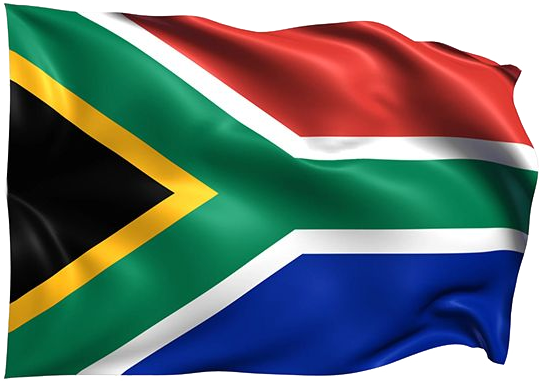
WHERE ARE THEY NOW?
Kevin
Stone
The first in our new series where we catch up with South African golfers who made their name on the professional Tour
BY MIKE GREEN
Kevin Stone won on the Big Easy Tour at the age of 47 back in 2013, and there was perhaps a little thought that it might herald a return of the man who had won nine times professionally before that from 1991.
'In fact, that was probably the last time I broke par,’ Stone, who turned professional in 1987, says tongue-in-cheek. He was able to accept that the Big Easy win at Benoni Country Club was his swansong on the regular Sunshine Tour. Sitting back and watching the successful emergence of his son Brandon as a professional gave him as much pleasure.
He also won on the Sunshine Senior Tour after the Big Easy Tour victory, so he actually broke par a few more times. That included an 11-under-par 61 to win the Fidelity Pro-Am by 10 strokes on the Woodmead Course at Country Club Johannesburg in 2020.
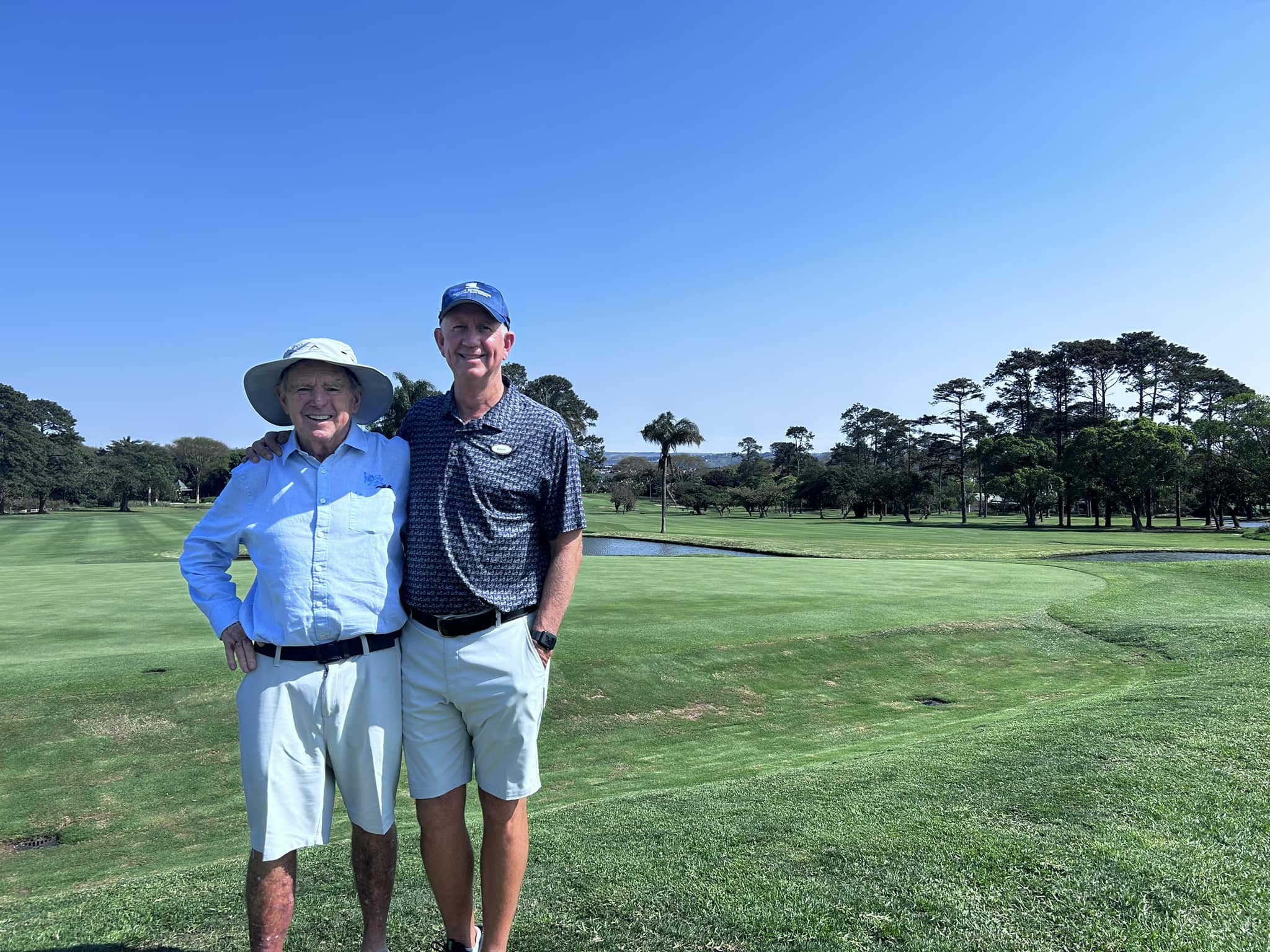
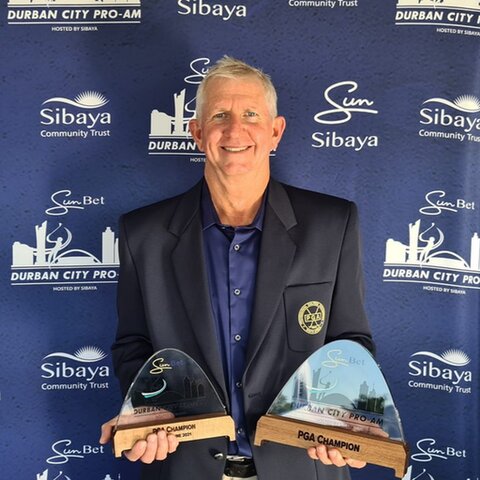
AS A PLAYER
- Won 10 times on the
Sunshine Tour. - Amassed nearly
R2-million in prize money. - Best World Ranking:
396th (Jan 1993). - Lowest round:
61, CCJ Rocklands, 2020. - Quote, unquote:
‘It was only when I managed to score 61 and win by 10 shots at CCJ that I decided to quit on a record no other golfer has, not even Tiger. My lowest recorded score and biggest winning margin. What a way to end my playing career!’
Stone has brought his experiences as a professional player to what he’s now doing at the age of 59: running the KwaZulu-Natal region for Matko Turf.
He had been working at Mount Edgecombe (with his wife Desiree, who was the CEO) since the emergence from the Covid-19 lockdowns, when he was approached by Peter Matkovich, whom he has known for the best part of 30 years.
‘I’ve been there for 18 months, helping the guys fix the courses and getting the rankings up, all that kind of stuff,’ says Stone.
Having formed a relationship with agronomist Mike Waddington at Mount Edgecombe, he has been able to contribute increasingly fruitfully to the operation as his perspective as an ex-player brings unique insights. ‘I classify Mike as probably the best greenkeeper and agronomist in South Africa,’ says Stone.
‘Every single thing I need to do, I consult with Mike and get his opinion. He’s always said having a guy like me, who’s played and knows what the surfaces should play like, is valuable. And it’s very easy to have the knowledge. You get the grasses to grow, but sometimes it’s not practical; you need the grasses to be firmer and not green.
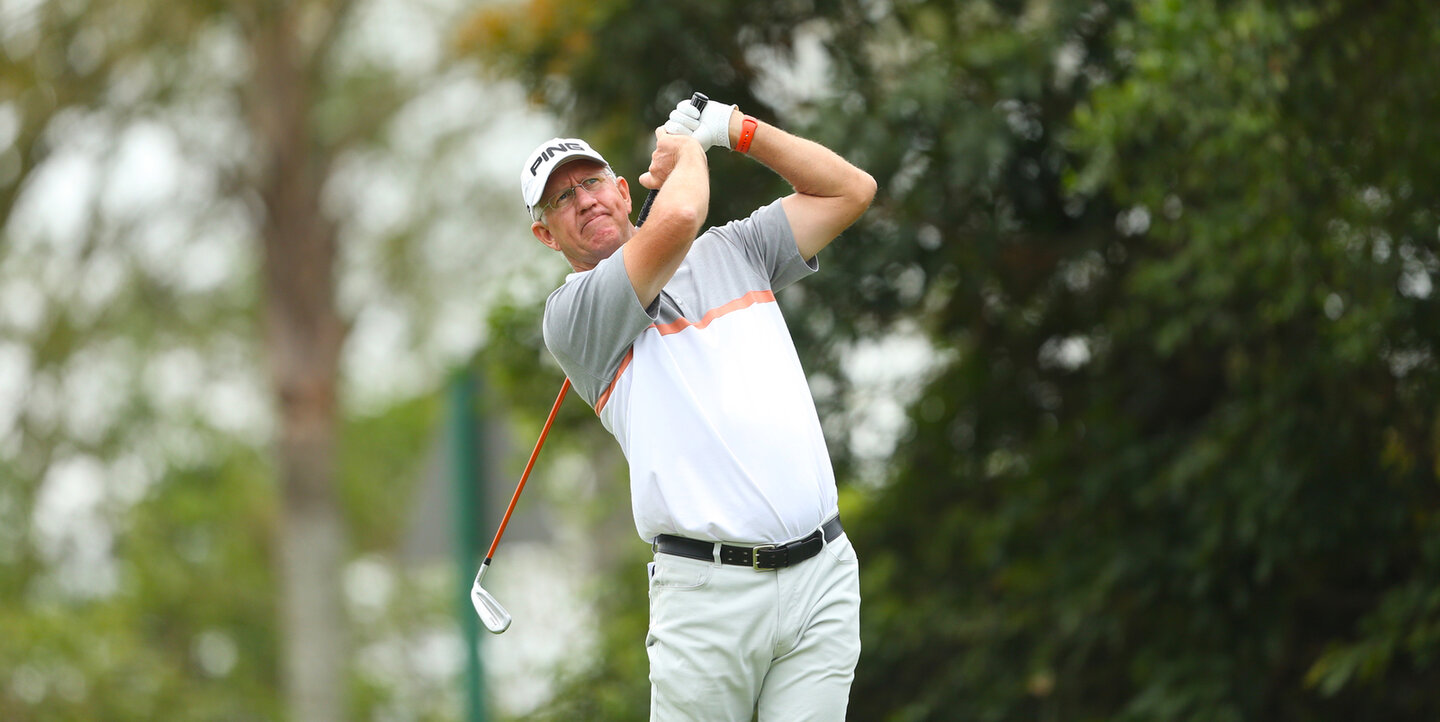
‘It sounds stupid, but the playability aspect is important, along with the shaping of the fairways, the way they rake bunkers, cut the pins and set up courses... that kind of thing is what I try to get through to our staff who maintain these courses.’
Interestingly, the work takes him away from home a lot, and being away from home after the birth of Brandon was the reason he stopped playing on the Tour in 1998, five years after his first son was born. ‘It’s a lot of travelling but I enjoy it,’ he says. ‘It keeps me busy. I get to meet different personalities and committees. Everyone’s got a view of what they want. You’ve got clubs that have money and ones that don’t, and clubs that struggle for rounds, and others that struggle to reduce the rounds.’
Ask him if he has a favourite among the courses he works with, and he plays as coy as a father who needs to name a favourite child. ‘Do I have to say? Do you want me to lose my job?’ he laughs. ‘I think Mount Edgecombe and Durban Country Club, with the board they have. In the next couple of years, Durban Country Club will go up in the rankings even more.’
It’s seeing courses from the perspective of his career that gives him the insights into what he also sees on professional Tours.
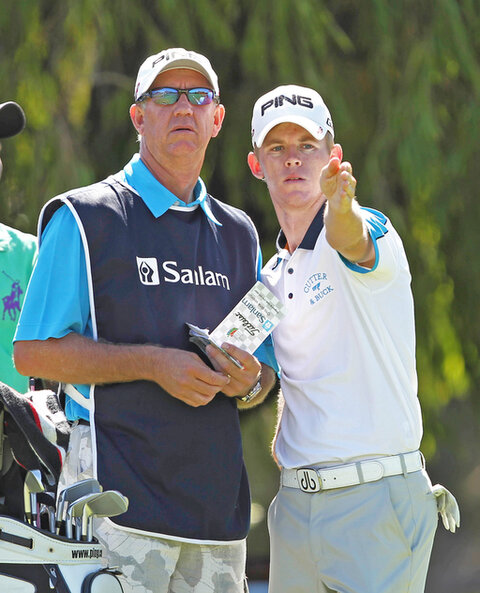
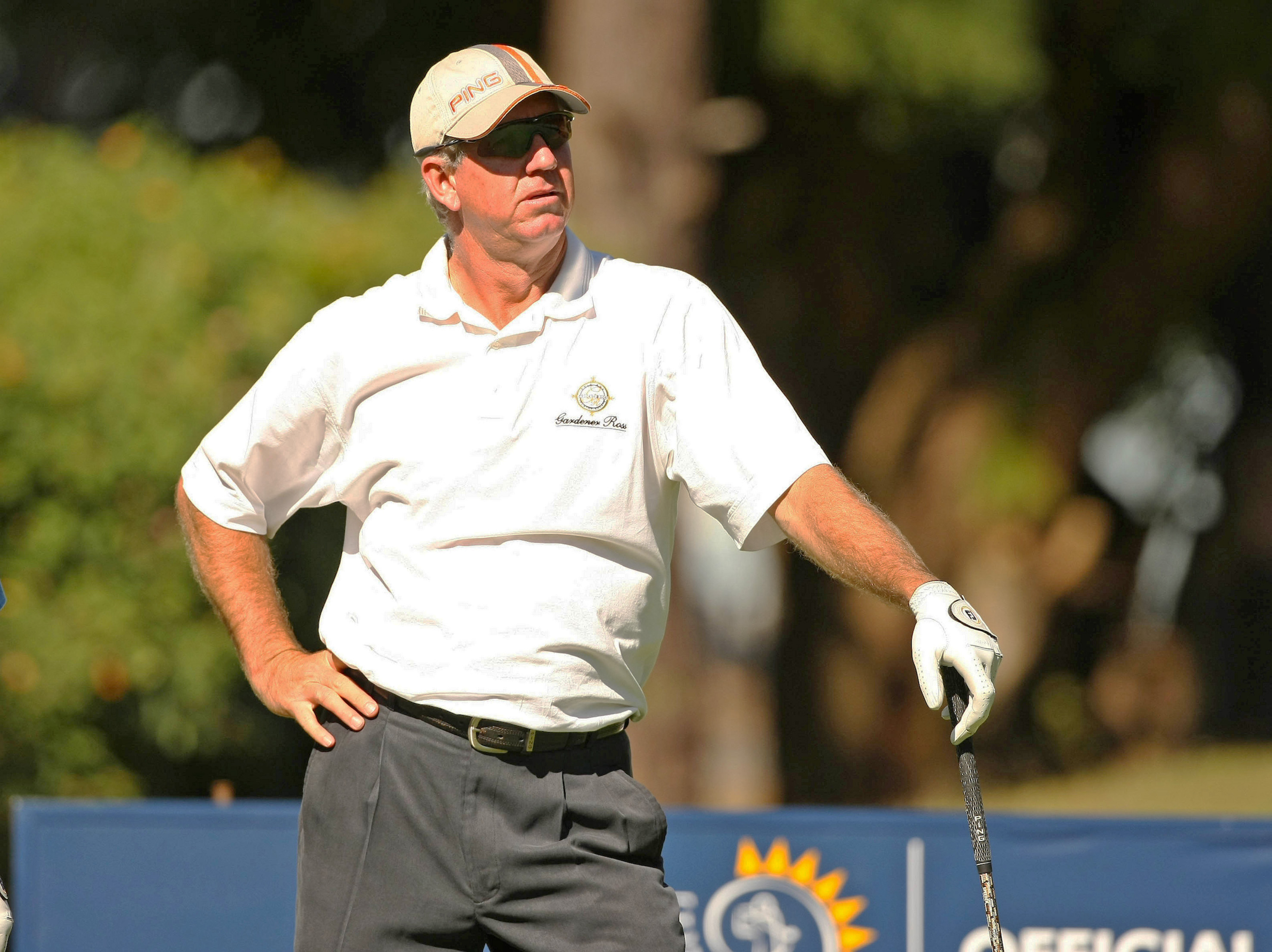
‘I was actually chatting to Brandon about it a couple of weekends ago,’ he says. ‘And I told him that when we grew up, when you left home, there were no cellphones or FaceTime or this kind of crap. When you were gone, you were gone. Then we would travel from Rustenburg to Sishen and to PE, and you got to play for R40 000. And now, if it's not like R2.5-million the guys aren’t going. I said to him, you guys are very spoiled.’
Having said that, he acknowledges that the game has moved on since his time. ‘One thing that has changed is that it's become a much more serious job. The guys train, they’re fit, and they practice and eat properly.
‘In our day, if you played well, you’d win. It's become far more of a big business as opposed to let's go travel with mates and play somewhere.’
He does know it’s breeding better players. ‘The guys nowadays have access to so much technology. They know the spin rate, the ball flight. The game has become so different from when we played.
‘I refer to a guy like Mark McNulty, who never worried about hitting it 350 metres. He was worried about getting in the hole with as few shots as possible. His main goal was, hit on the fairway, hit on the green and make the putt. Which is what I like. You know, I like the old school.’

